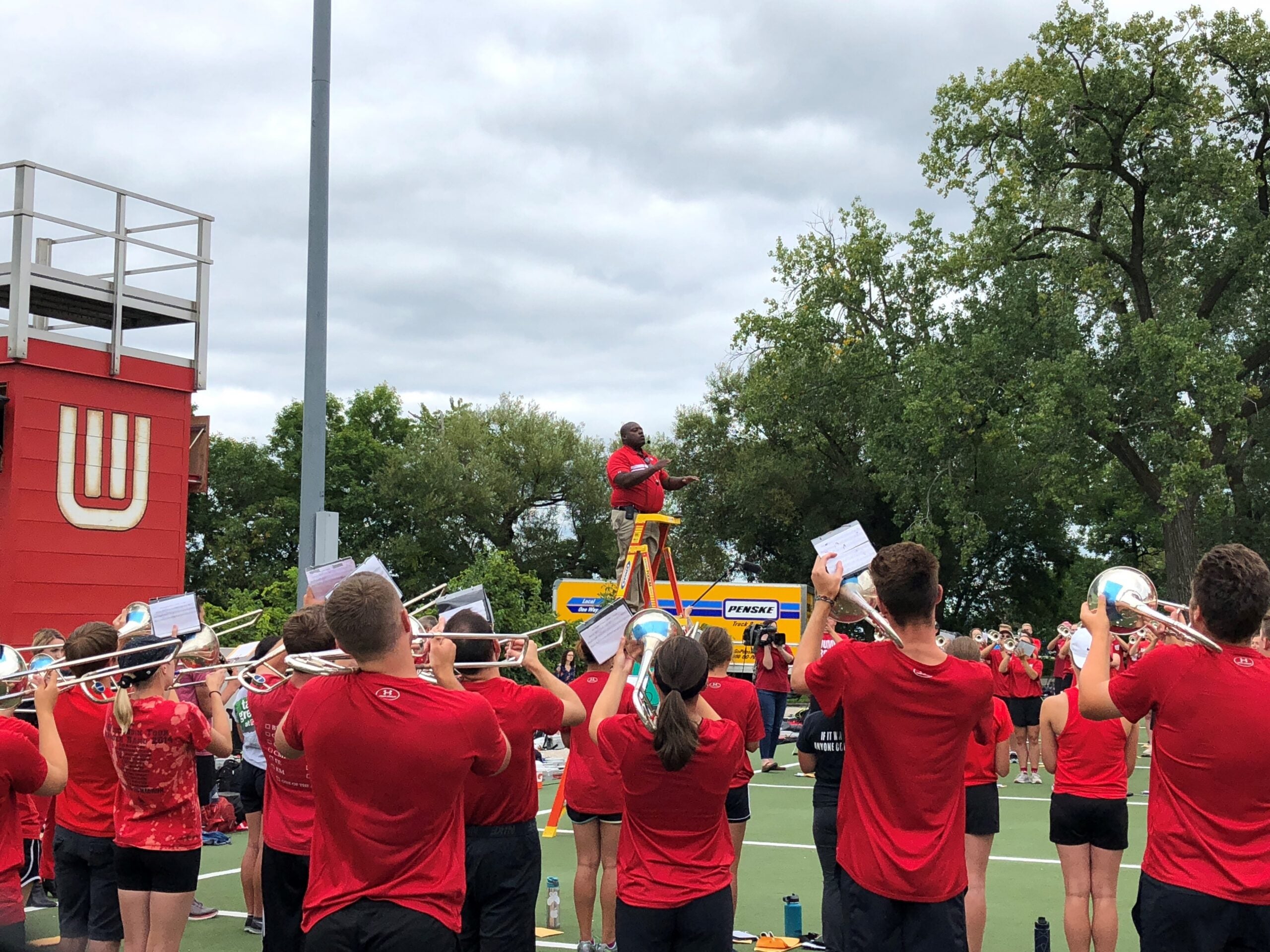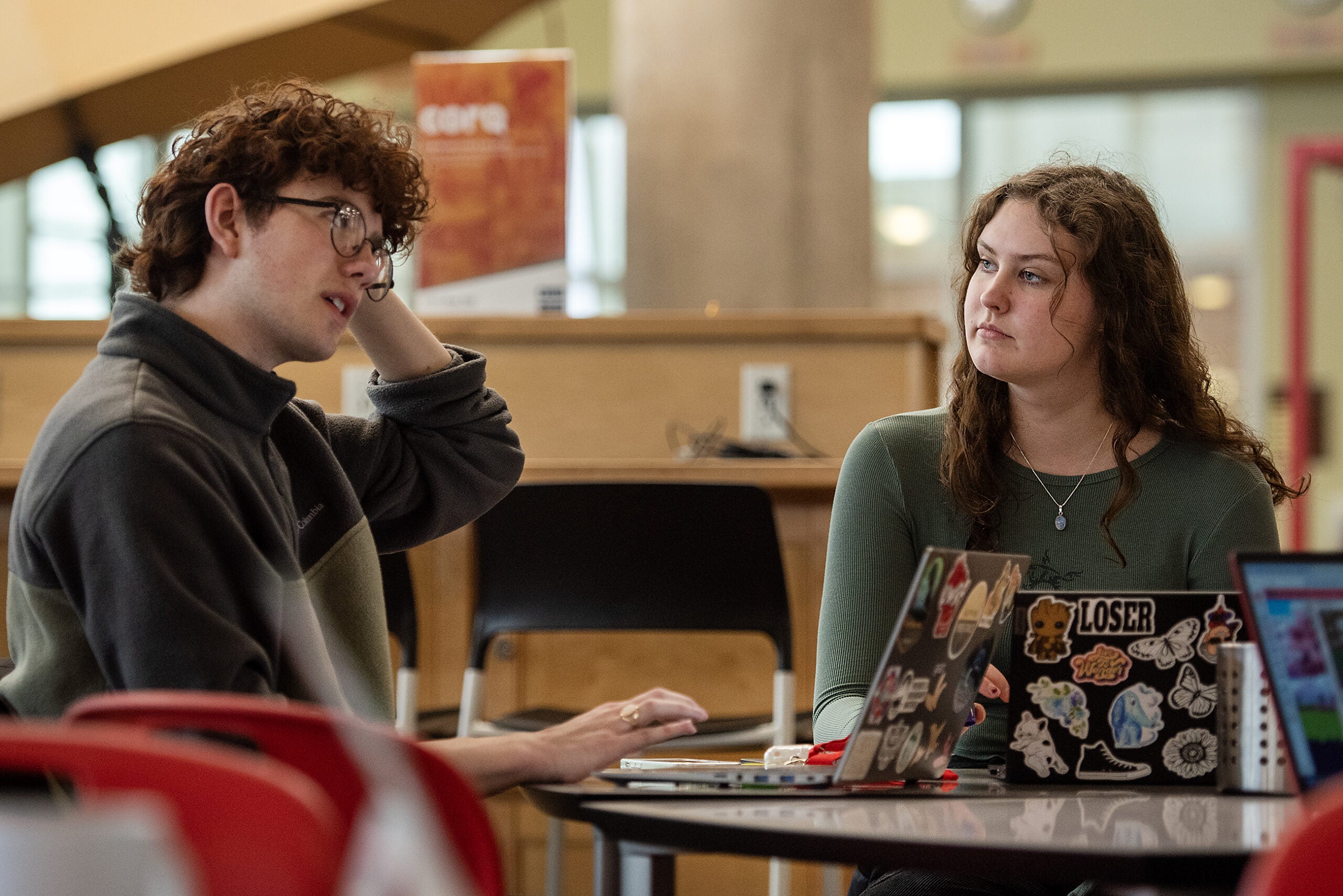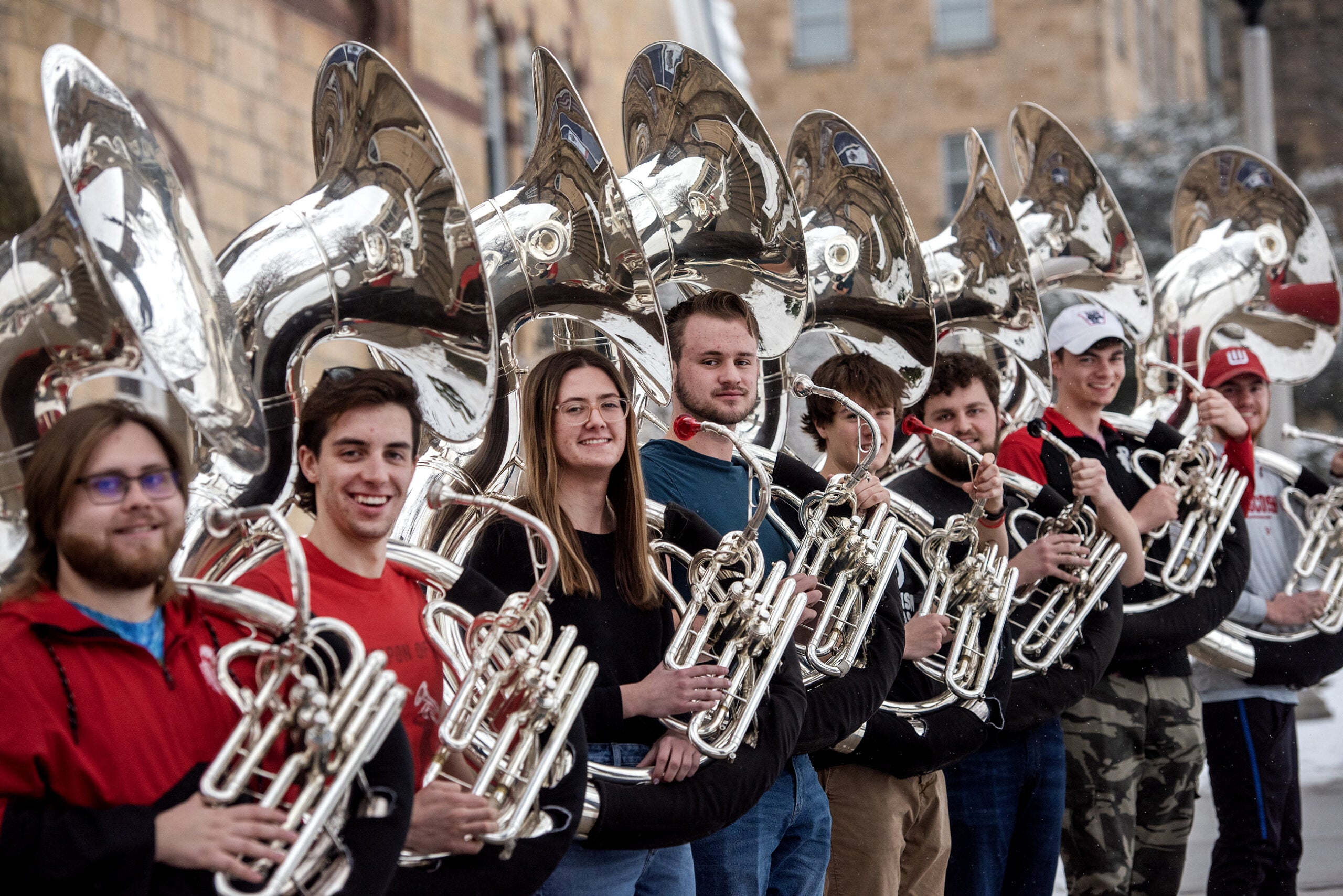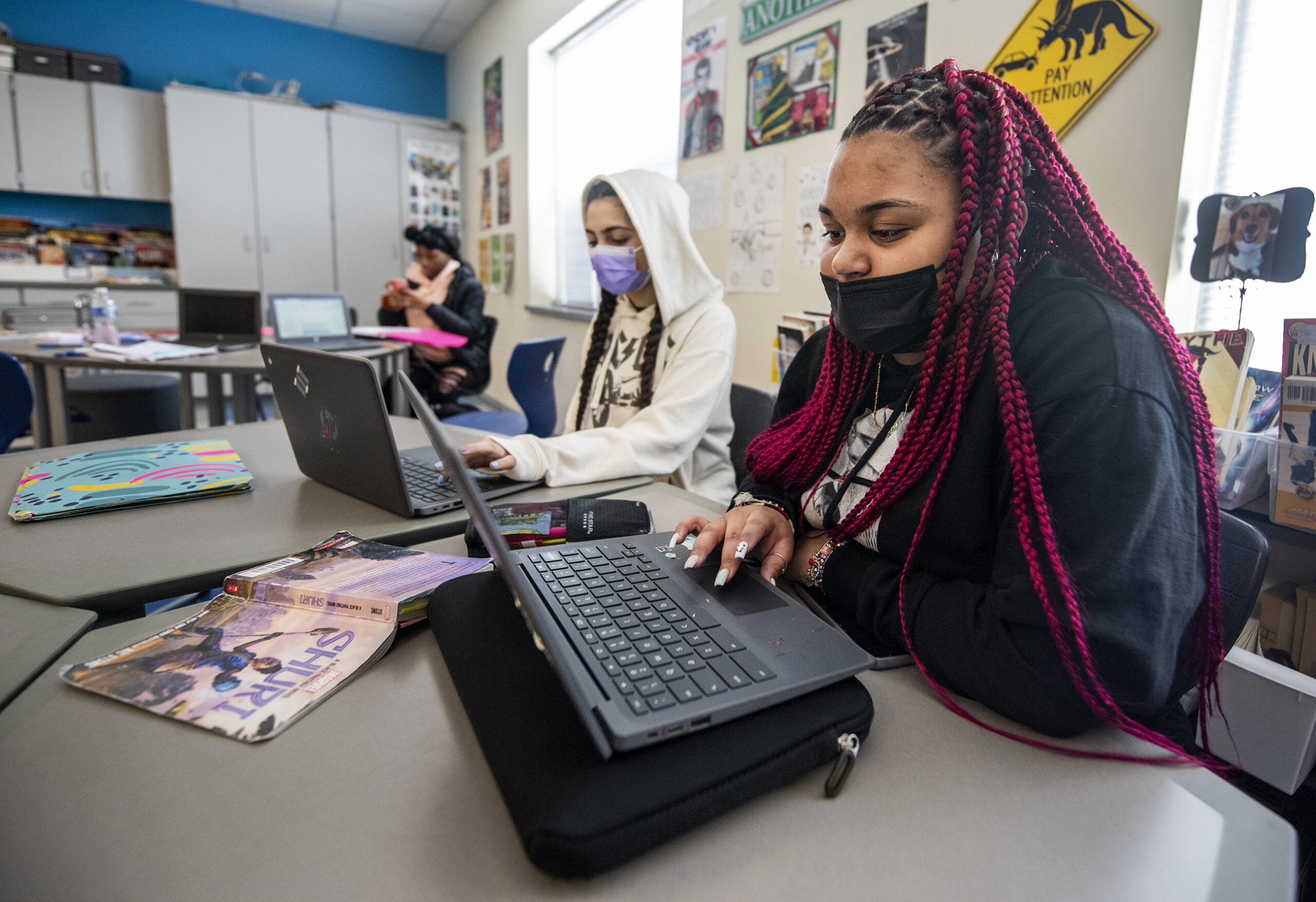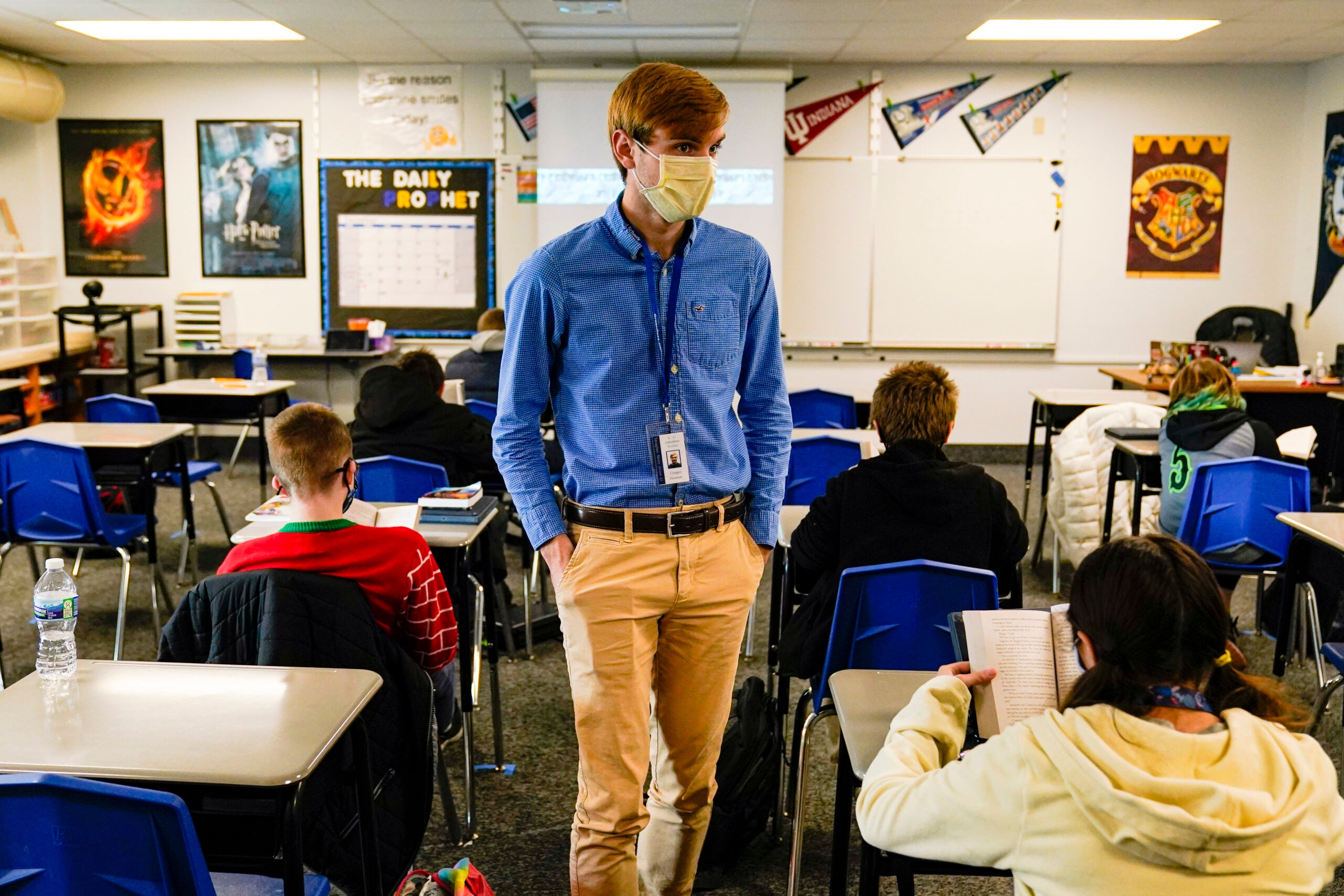When the spread of COVID-19 forced colleges and universities to switch to online learning, the fate of hands-on classes seemed uncertain. How would a chemistry lab or a theater class continue remotely?
The same is true with music.
Ana Tinder, a sophomore music performance major and violinist at the University of Wisconsin-Madison, told WPR in March that she didn’t know how her one-on-one lessons and music ensembles would go on.
Stay informed on the latest news
Sign up for WPR’s email newsletter.
Now that she’s experienced a few weeks of remote instruction, Tinder said in-person learning seems like something that happened ages ago.
“The beginning of the semester just feels like a completely different world from now,” she said, laughing.
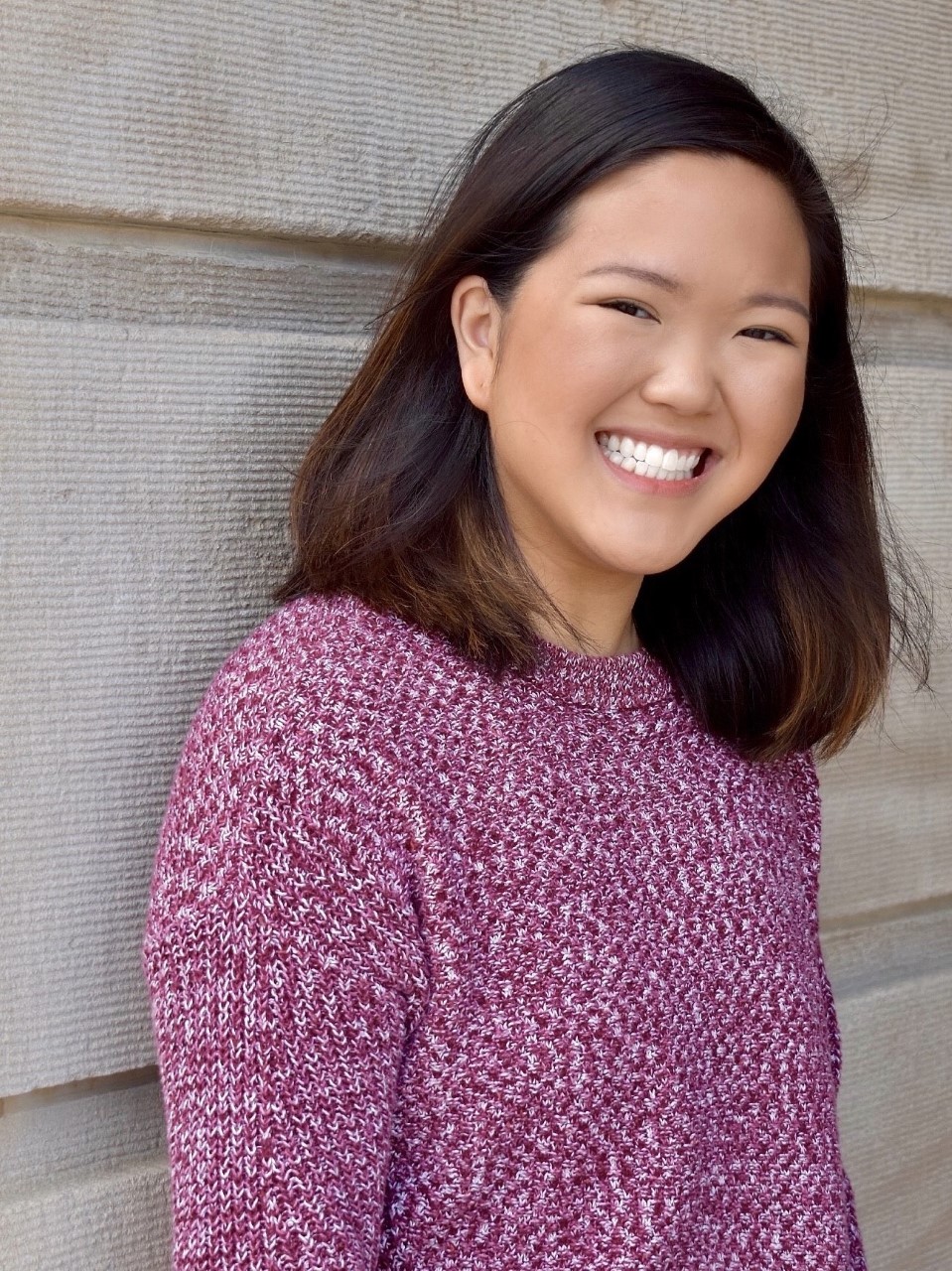
Tinder is now staying at a family home in Wisconsin Dells. Her more academic classes, like music history, made for a more natural transition to online learning, she said.
But classes that usually require group rehearsals are now discussions of pieces they would play, but can’t because the type of attention and observation of others needed for rehearsal can’t be replicated online, Tinder said.
“You want to work together and make one unified sound and try to bring this piece to life for an audience to enjoy,” Tinder said. “You can work on your part as much as you can at home, but the whole part of rehearsal is learning to listen to each other, and not yourself.”
For Tinder, it’s also hard to find motivation to practice without a concert to work toward, or her peers to cheer her on.
Ann Ellsworth, a French horn professor at the Lawrence Conservatory of Music in Appleton, found her own solution to that: “Live from the Laundry Room.”
“I open a Zoom meeting just for me, where I’m practicing in the laundry room — I’m a late-night practicer — and whomever wants to can come in, jump in,” Ellsworth said.
Everyone has their mics on, but their computer volumes turned down, to simulate what it sounds like to just barely hear a classmate practicing in another room. That way, Ellsworth said, it can feel like they’re all practicing in the same place and keep each other accountable.
Ellsworth is also using technology to simulate playing in an ensemble. Her students are recording their own parts of “Chuck E.’s In Love” by Rickie Lee Jones and editing everything together.
Other ensembles are still figuring out how to adjust to a socially-distanced world. The University of Wisconsin Marching Band had to cancel its sectionals, or summer practice sessions, after UW-Madison shut down all non-credit summer programs.
Corey Pompey, associate director of bands, said that people who want to join the drumline will miss out on vital practice since they usually must attend a sectional in order to audition for the band.
“For the drumline, that is a concern. When you think of the drumline, in many ways, that’s the heartbeat of the ensemble,” he said. “They play more than any other section.”
Pompey said the band hasn’t decided on a solution yet. There might be an online sectional, but students are unlikely to have their own marching drums.
With no end to the COVID-19 pandemic in sight, Pompey also said the band is thinking about what will happen if there are still limitations on large groups in the fall, or if fall classes can’t resume as scheduled.
“We’re mainly just brainstorming, and trying to read the tea leaves as best we can to figure out what the fall will look like,” Pompey said. “I daresay that a lot of us are somewhat anxious about the unknown, and how we work through this.”
Wisconsin Public Radio, © Copyright 2025, Board of Regents of the University of Wisconsin System and Wisconsin Educational Communications Board.
